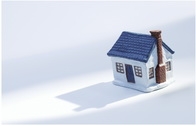Advertisement
Fannie Mae Not Expecting to See Small Growth Until at Least 2012

The economy was hit by a barrage of disappointing news during the month of July, which led to a significant downgrade in the overall macro economic forecast released by Fannie Mae's Economics & Mortgage Market Analysis Group. While the August 2011 Economic Outlook does not forecast a double dip recession, the downgraded forecast reflects the Group's view that the probability of another recession is close to a coin toss. For all of 2011, economic growth is expected to downshift to 1.4 percent from 3.1 percent in 2010. Growth is expected to pick up in 2012, but only to about two percent, compared with 3.1 percent projected in the July forecast.
"Key factors, including revisions to gross domestic product (GDP) data, have revealed that we have a bigger hole to dig out of, which explains the consumer angst over the lack of employment growth," said Fannie Mae Chief Economist Doug Duncan. "Moreover, European financial market and fiscal policy turmoil, coupled with the U.S. debt ceiling debate, have hit on consumer confidence, which is at recessionary levels."
Fannie Mae's most recent National Housing Survey (NHS) has found that pessimism continued to mount in July, as 70 percent of those polled believing that the economy is on the wrong track, and just 23 percent say the economy is heading in the right direction.
Housing activity is expected to weaken along with the overall economy due to a renewed decline in business and consumer confidence and a softening hiring trend. One exception is the rental housing market. The rental vacancy rate (the share of rental housing that is vacant and for rent) plunged from 9.7 percent to 9.2 percent in the second quarter of 2011, the lowest rate in nine years. This is consistent with the declining trend in the homeownership rate, indicating that a rising share of households have shifted to renting over owning.
"Macro economic factors are clearly driving the mindset of consumers and housing is being impacted by this," Duncan said. "However, housing has moved into second position behind general economic concerns among consumers, which is demonstrated in our National Housing Survey results. Our July data shows that 70 percent of Americans think the economy is on the wrong track, up from 60 percent a year ago. In turn, despite historically low interest rates, consumers are still saying they don't see this as a good time to go out and borrow money to buy a house."
About the author





